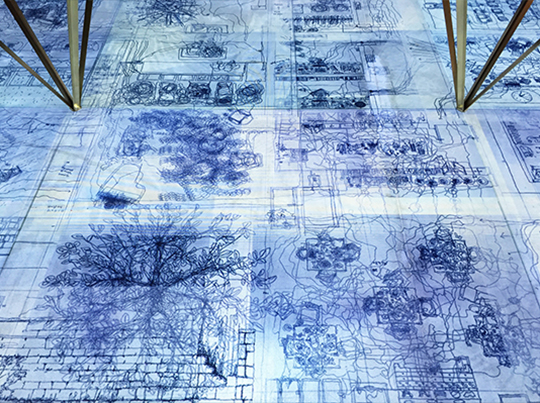Studio 07
The Body Keeps The Score
Anthony Clarke

Studio Description
Using the work of Bessel Van Der Kolk (The Body Keeps the Score) as a reference, this studio will seek to explore new methodologies, typologies and approaches for better understanding architecture’s role in the lived experiences of Trauma.
The brief for this studio will include the design of a ‘facility for movement and interaction’ exploring relationships of time, agency, rhythm, attachment, familiarity, safety, control, collaboration, courage, and what it means to feel alive.
This project will be situated in Melbourne. The site(s) are yet to be determined.
Studio Outcomes
The objective of this studio is to challenge our existing architectural processes and current modes of reference. This studio will draw heavily from external disciples including Psychology, Neuroscience, Philosophy and Sociology to test new methods of communication, language, and architectural delivery.
This studio will be broken up into three components. The first will be an ongoing and evolving question / statement each student will generate through a continued line of investigation around trauma. The second will be the design of a small-scale installation project based around personal experiences of physical collaboration, and the third will be the design of a medium scale physical facility for those living with PTSD and the effects of trauma.
Studio Leader
Anthony Clarke is the director of BLOXAS, a practice for empathic and experimental architecture. The approach of BLOXAS is led by research, experimentation, and curiosity. These elements are inherent in its philosophy and drive an interrogative and empathetic response. Specialists from a variety of disciplines contribute to the practice’s curative understanding of individual and collective behaviour, sensory perception, physiology, and phenomenology. BLOXAS investigates how people affect—and are at the effect of—its designs.
Readings & References
- Van Der Kolk, Bessel. The Body Keeps the Score. (Penguin Books). 2014.
- Boys, Jos. Doing Disability Differently: An Alternative Handbook on Architecture, Dis/Ability and Designing for Everyday Life, Chapter Nine, Architecture, Place and the ’Care-Full’ Design of Everyday Life, 2014.
- Marmot, Alexi. ”Architectural determinism. Does design change behaviour”, British Journal of General Practice, April 2002.
- Mayeroff, Milton. On Caring, (USA: Harper Perennial / Harper Collins Publishers). 1990.
- Laing, R.D. The Divided Self. (Pelican Books). 1960
- Latour, Bruno. Reassembling the Social: An Introduction to Actor-Network-Theory. (Oxford University Press). 2005.
- Mayeroff, Milton. On Caring, (USA: Harper Perennial / Harper Collins Publishers). 1990.
- Sacks, Oliver. Seeing Voices. (Picador, University of California). 1989.
- Yanni, Carla. The Architecture of Madness. (University of Minnesota Press). 2007.
Schedule Mondays 13:00-16:00, Wednesdays 13:00-16:00